How far can a tai chi metaphor go?
When you practice and art and follow its philosophy long enough, you eventually start to see it everywhere. You may even be tempted to manifest it in places where it probably shouldn’t belong. Case in point: tai chi fanatics on a dance floor.
Another case is the natural attempt to apply five element theory to a game made famous by the hit comedy series, “The Big Bang Theory.” In the episode entitled “The Lizard-Spock Expansion”, Sheldon proposes adding the variable “Lizard” and “Spock” to the classic “Rock Paper Scissor” game in order to increase the randomness of the outcome.
In spite of the apparent failure of this strategy, I found the premise entertaining, and the game itself intriguing. My interest was due to a correlation I saw between the new 5-variable version of the game and ancient asian 5-Element Theory.
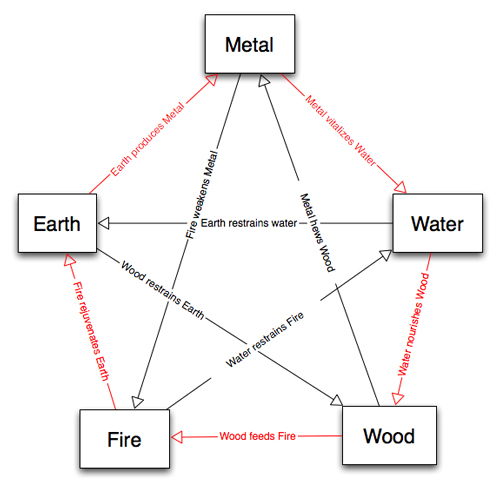
Now there would initially appear to be a conflict here, since the 5-element theory (also called the 5-phases, or Wu Xing) is typically thought of as two different cycles, one nourishing and the other restraining, while the rock-paper-scissors-lizard-Spock (RPSLS) game appears to be one big destructive cycle.
I first considered a version of the RPSLS game which conformed to the two cycle pattern. But this did not seem like a workable game.
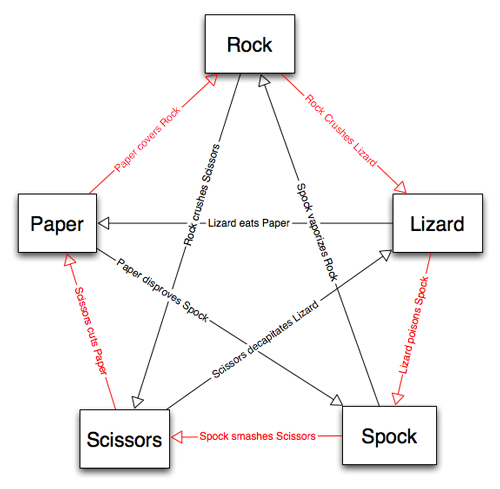
I was considering a way of modifying the 5-element theory to suit the game, when I realized that there already was one.
In one obscure version of the ancient mnemonic, there is a double restraint cycle where the nourishment cycle is reversed. This seemed to suit just fine.
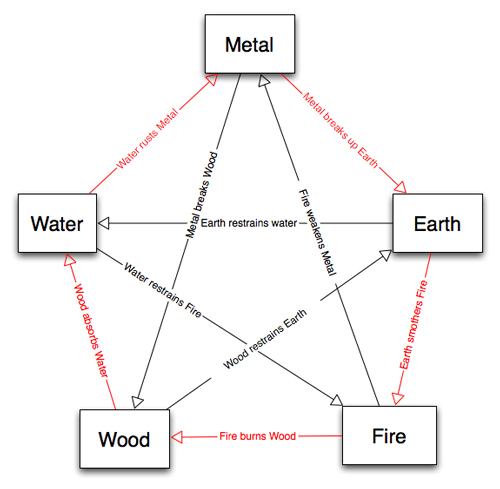
Is there a point? How does this relate to tai chi.
Now this does bring up a couple of important points, both of which I try to express to my students on a regular basis.
The first point is that some people seem to have far too much time on their hands.
The second is that the 5-element theory, like the 8-trigram theory, and many other ancient theories from various cultures around the world, is more of a mnemonic than a theory. At best it is a metaphor for patterns that exist in nature.
Ultimately, all analogies break down.
Unfortunately, many so-called scholars have made the mistake of viewing the theory as a sacred law. When they do, they become trapped in a world of polemics, shaping the facts to suit the theory rather than abandoning the theory when the metaphor becomes cumbersome or false. Their fanatical adherence to a metaphor, which was initially meant to simplify difficult concepts, becomes what some modern technologists might call “simplexity.” It makes the whole thing impossible to understand.
Of course, there are many things which cannot be simplified or represented with any kind of metaphor or explanation at all. The closest we can get is breaking down the basic relationships that form duality. The most complex problem can often be described in terms of yin and yang. But sometimes, no dualistic interpretation can express the truth.
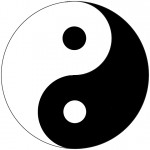
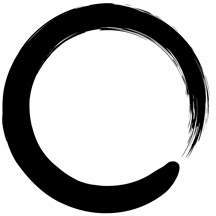
At times like this we can only wait for the enlightening non-dualist perspective that some call “wuji”, or just go back to playing the game for its own sake.
“Rock, paper, scissors, lizard, Spock, GO!”
Dang! – tied again.
The origins of “Rock, paper, scissors, lizard, Spock”
Although it has gained huge exposure due to at least two episodes of “The Big Bang Theory” (Season 2 – “The Lizard-Spock Expansion”) in which Sheldon Cooper (played by Jim Parsons) explains “Scissors cuts paper, paper covers rock, rock crushes lizard, lizard poisons Spock, Spock smashes scissors, scissors decapitates lizard, lizard eats paper, paper disproves Spock, Spock vaporizes rock, and as it always has rock crushes scissors.”
As mentioned in a more recent version of The Big Bang Theory, (Season 5 – “The Rothman Disintegration”), the game was originally created “by internet pioneer, Sam Kass.” On his website, Kass himself shares credit with Karen Bryla.
Sam Kass is a Pilot and software developer / engineer who has worked on software for image and character recognition, manufacturing, and information visualization.
According to his online resume, he is currently “ Global Sales Technology group within Goldman Sachs, as a member of the Institutional Portal team.
Sam Kass sells Official “old school” Rock Paper Scissors Spock Lizard merchandise through his CafePress webstore.

Comments are closed.